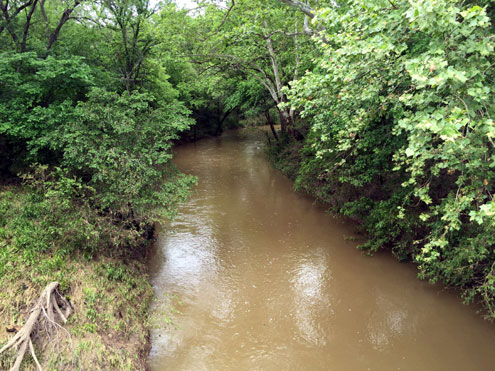McKinney -- The Texas Water Resources Institute's Texas Riparian and Stream Ecosystem Education Program will host a free workshop from 8:00 a.m.-4:00 p.m. September 13 in McKinney for area residents interested in land and water stewardship in the Upper Trinity and Lavon Lake watershed.
The workshop will be at the Heard Natural Science Museum and Wildlife Sanctuary, 1 Nature Place, with the morning session in the museum. The afternoon session will include a walk and presentations along a creek at the sanctuary.

The workshop is presented by the institute, Texas A&M AgriLife Extension Service offices in Denton and Collin counties, North Texas Municipal Water District and Upper Trinity Regional Water District.
The program will include a lunchtime presentation. A catered lunch is available for $10, or participants may bring their own.
Register for lunch online at http://bit.ly/2hOaHb5 or pay cash at the door.
Attendees must RSVP by Sept. 8 to Nikki Dictson at 979-575-4424 or n-dictson@tamu.edu or online at http://nrt.tamu.edu/schedule.
According to Galen Roberts, North Texas Municipal Water District watershed coordinator based in Wylie, Lavon Lake is the uppermost reservoir on the East Fork of the Trinity River and provides drinking water to more than 1.6 million residents in North Texas. The 491,520-acre watershed that drains to Lavon Lake includes parts of Collin, Grayson, Fannin and Hunt counties.
“In partnership with AgriLife Extension, the water district is proactively developing a watershed protection plan to help protect and improve water quality in Lavon Lake,” Roberts said.
Blake Alldredge, Upper Trinity Regional Water District water resources specialist, Lewisville, said Denton County is rapidly transforming from a largely rural county to one with more urban character.
“As this development continues, several partners in the county are working to preserve high-value watershed areas, particularly along creeks and rivers, with the development of the Denton County Greenbelt Plan,” Alldredge said. “This riparian workshop will help us accomplish this.”
Dictson, AgriLife Extension program specialist for the water institute, said the workshop will focus on the nature and function of stream and riparian zones as well as the benefits and economic impacts from proper functioning riparian systems.
“Riparian areas – the green vegetated land area adjacent to the bank of a stream, creek, bayou, river or lake – are unique and important ecosystems that provide many benefits including habitat and forage,” Dictson said. “The goal of the workshop is for participants to better understand riparian and watershed processes, the benefits of healthy riparian areas and what resources are available to prevent degradation while improving water quality.”
David Annis, AgriLife Extension agent for Denton County, said workshop presentations will be given by representatives of the Texas Water Resources Institute, U.S. Department of Agriculture’s Natural Resources Conservation Service, AgriLife Extension, Texas Parks and Wildlife Department, North Texas Municipal Water District, Upper Trinity Conservation Trust, and Heard Natural Science Museum and Wildlife Sanctuary.
Dictson said the workshop is being offered free thanks to program funding provided through a Clean Water Act nonpoint source grant from the Texas State Soil and Water Conservation Board and the U.S. Environmental Protection Agency.
Participants will receive a certificate of completion and appropriate continuing education unit certificates at the conclusion of the training.
The workshop offers many types of continuing education units, including three units — two general and one integrated pest management — for Texas Department of Agriculture pesticide license holders. It offers one unit from the Texas Water Resources Institute, seven credits from Texas Floodplain Management Association, seven hours for Certified Crop Advisors, seven hours from the Texas Board of Professional Land Surveying and six hours for Texas Nutrient Management Planning specialists. The program may also be used for continuing education units for professional engineers.
Other upcoming riparian workshops include an Oct. 3 workshop in Corpus Christi. Information on additional trainings can also be found at http://nrt.tamu.edu/schedule
For more information on this training, contact Dictson or visit http://texasriprian.org or go to Facebook at https://www.facebook.com/TexasRiparianAssociation